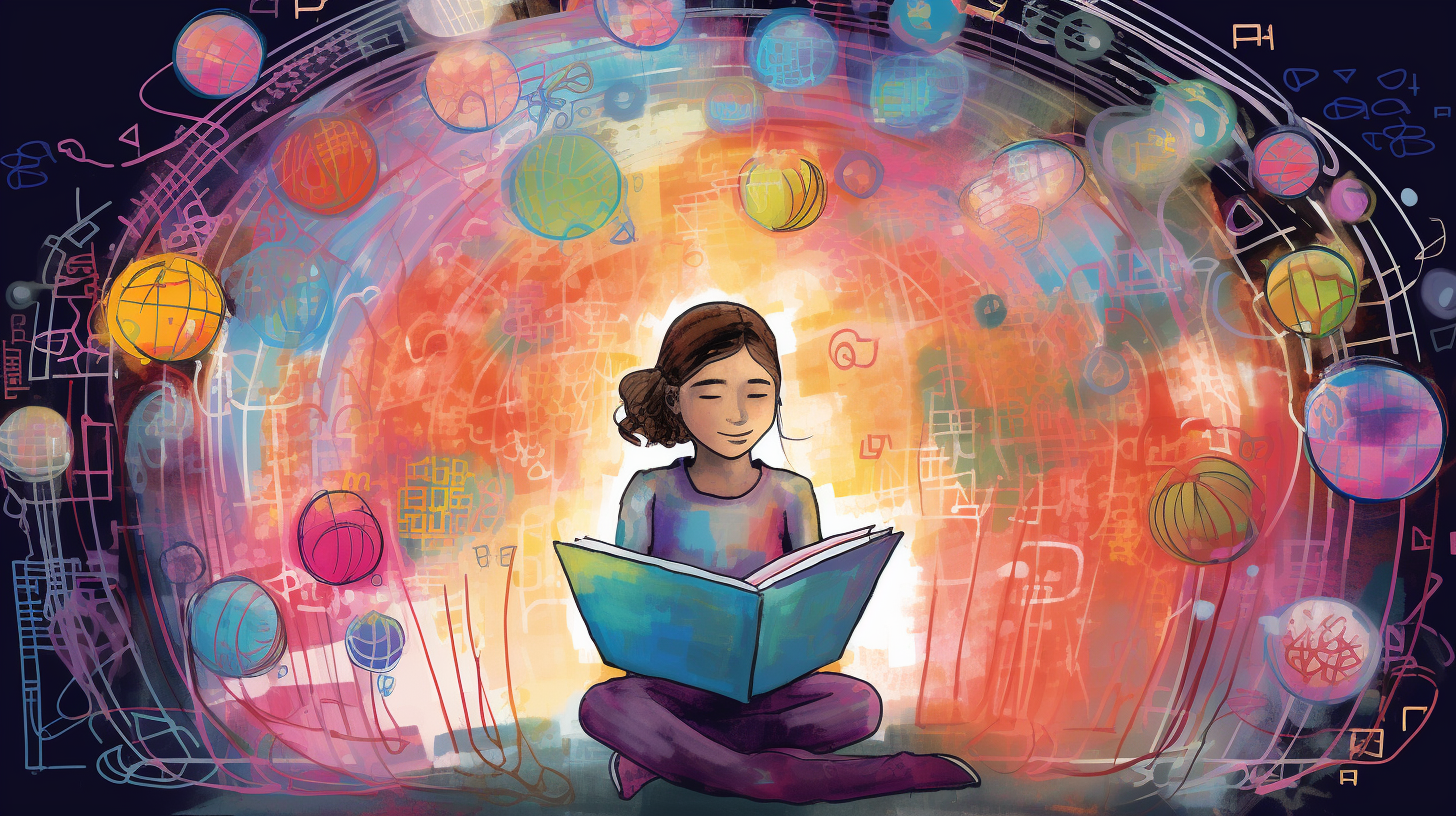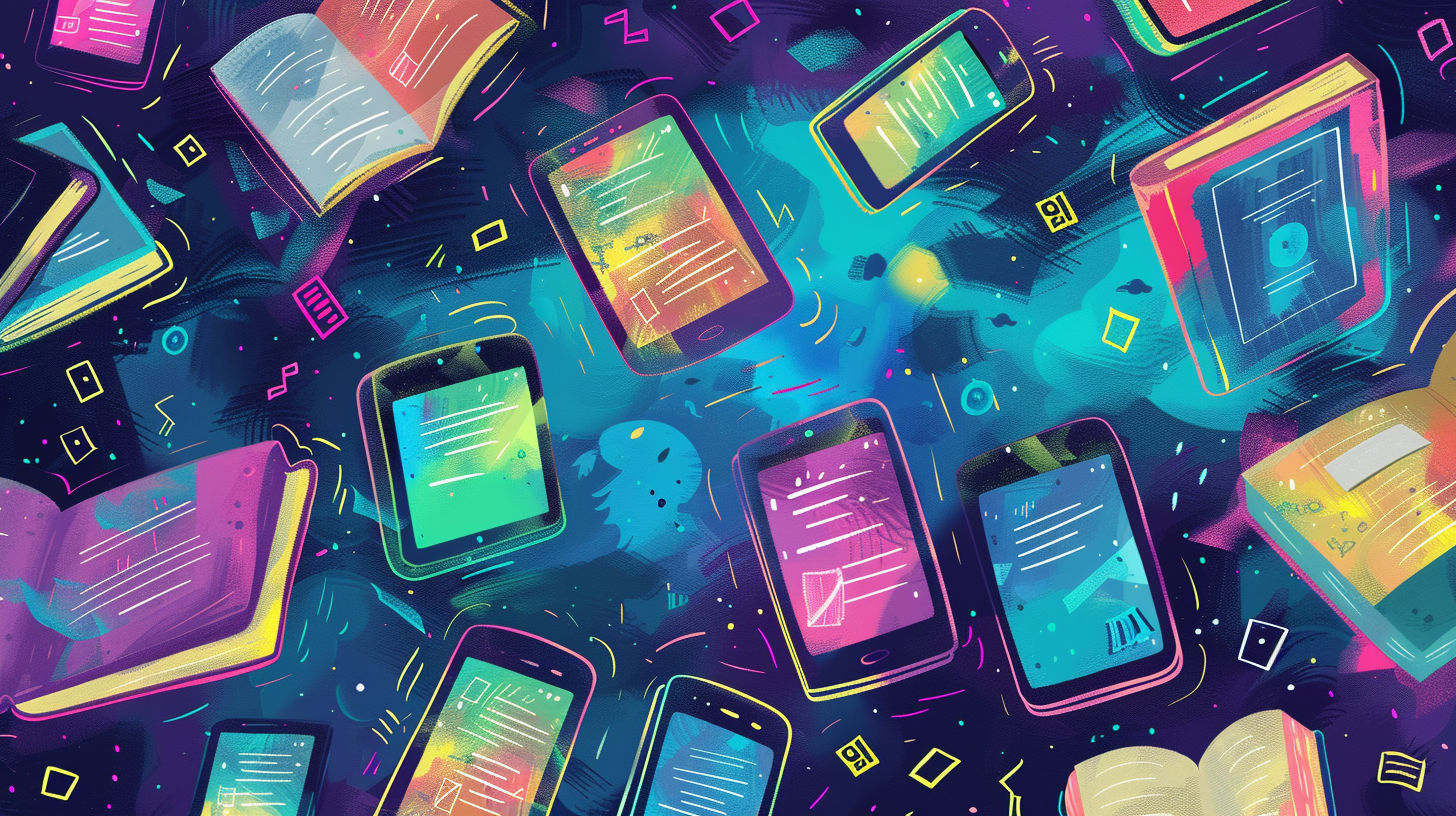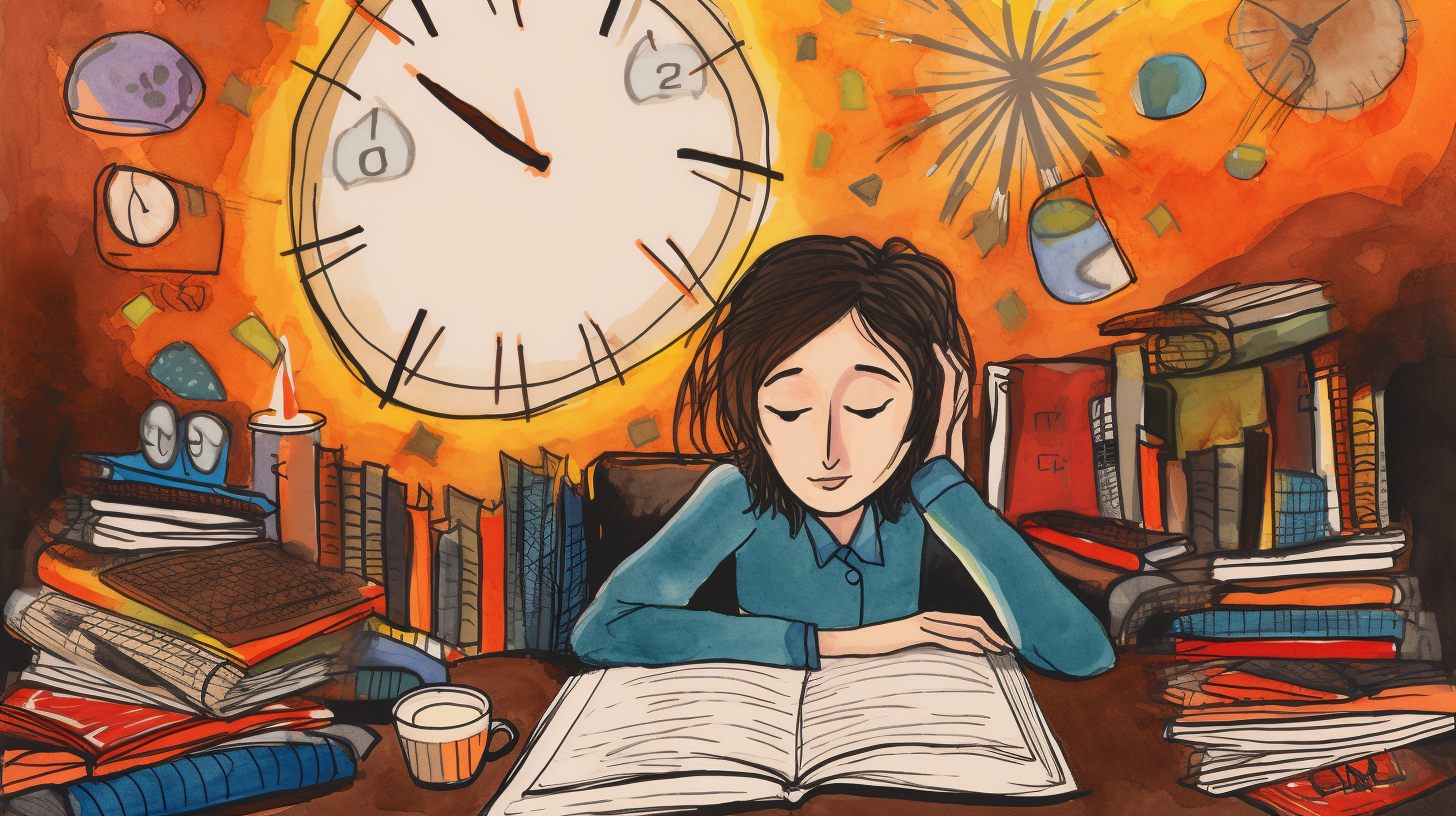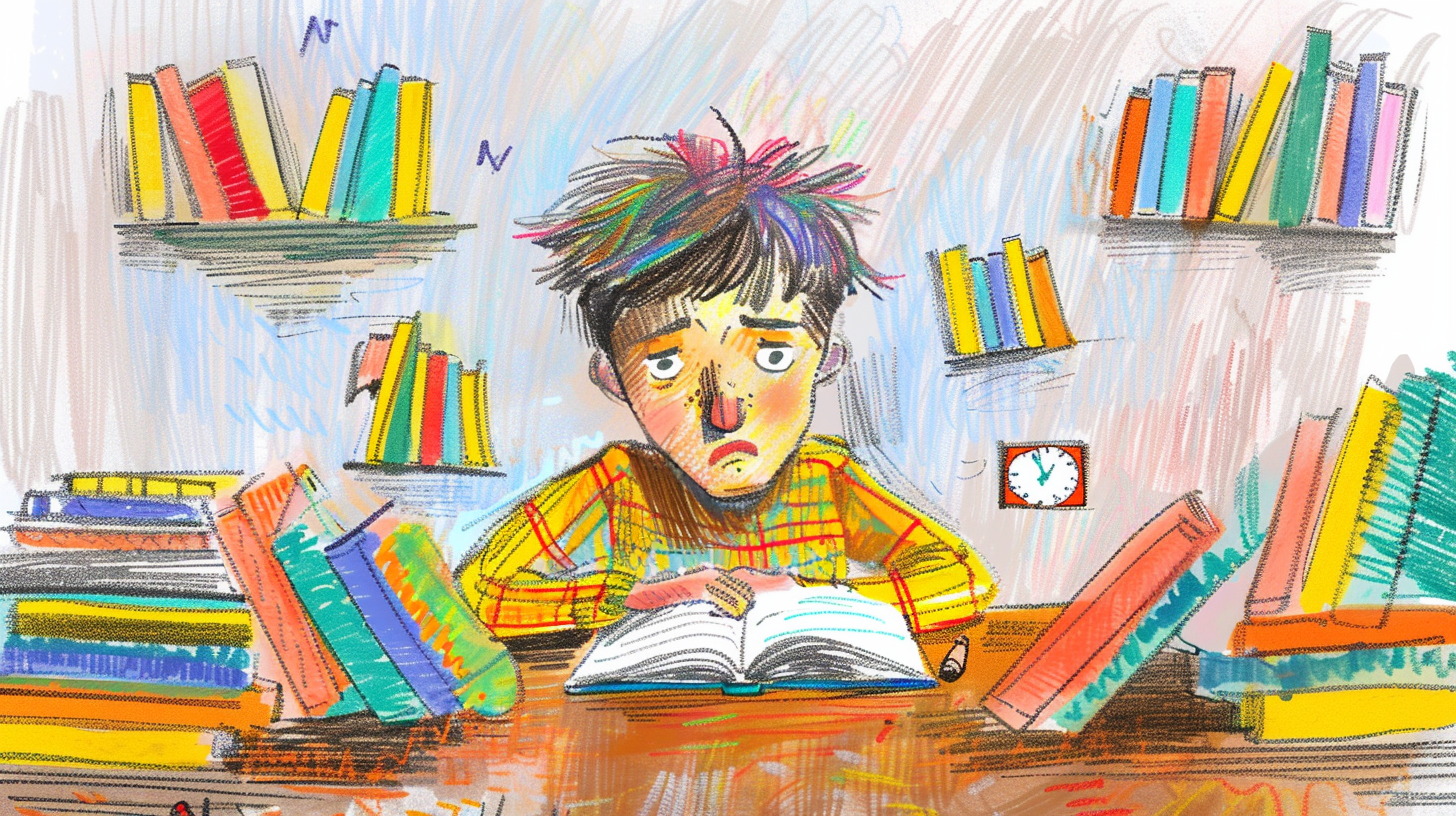Looking to unlock the secrets of how to be a better reader? The journey to improve reading skills is a quest many embark on, whether to boost knowledge, enhance career prospects, or simply for the joy of losing oneself in a good book. In this text, you’ll discover the numerous benefits of reading, from expanding your understanding to increasing empathy.
Benefits of Reading
Improves Vocabulary
Building a robust vocabulary is key to reading success. Every new book exposes you to a variety of words that you might not encounter in daily communication. The stronger your vocabulary, the better you’ll understand diverse reading materials, including complex texts linked to your academic or professional life. Maintaining a collection of unfamiliar words accelerates this process and helps you become a better reader.
Incorporate these new words into your conversations. This strengthens your language skills and cements them in your memory. Reading a wide range of genres ensures you encounter a breadth of terminology, which can help reading become not only easier but also more engaging.
Enhances Critical Thinking Skills
Critical thinking is pivotal when tackling complex concepts, both in college reading and in the professional sphere. When you read effectively, analyzing characters’ motives or dissecting intricate plots, you’re honing these skills. Effective reading strategies teach you to evaluate arguments, draw conclusions, and spot inconsistencies, rendering you an effective reader.
Applying reading tips such as questioning the author’s intent or comparing texts refines your critical thinking. As these skills develop, you’ll find that reading material for college or work-related reports becomes less daunting, boosting your confidence and competence.
Reduces Stress
Reading serves as an excellent stress reliever, evidenced by its ability to lower heart rate and blood pressure. Effective reading isn’t just about consuming words on a page; it’s about immersing yourself in a narrative. This form of escapism grants mental reprieve and relaxation. Whether you’re a student seeking solace from rigorous college reading or someone just looking to unwind after a long day, reading provides a temporary oasis from daily pressures.
Taking up reading techniques such as creating a dedicated reading space or reading schedule helps make this habit a staple in your routine. These reader tips improve the quality of your reading experience, enhancing your ability to engage deeply with the text and, in turn, reap the tranquility that reading so often brings.
Set Reading Goals
Determine Your Purpose
Understanding why you’re reading is critical for developing your reading skills. When you’re clear about your purpose, you’re better equipped to choose materials that align with your goals. If you’re reading for college, it’s important to focus on texts that will deepen your understanding of your subject. But if your goal is personal development, you might choose non-fiction that enhances your knowledge in a specific area. Identifying what you want to gain from reading sets the stage for progress as an effective reader.
Choose Appropriate Reading Material
Selecting the right books is a game-changer for becoming a better reader. Opt for audiobooks if you’re seeking convenience and the ability to multitask while absorbing content. They’re especially helpful when reading material is tough, as they can enhance comprehension through tone and emphasis. Audiobooks can also be a great way to enjoy literature if you’re visually impaired or prefer listening to reading text.
Set Realistic Reading Targets
To be a better reader, it’s beneficial to set targets that encourage consistency without causing overwhelm. How to get better at reading? Start with manageable goals that fit into your lifestyle. It’s not just about finding time for reading; it’s about making the most of the time you have. Define how much time you can devote to listening to your chosen audiobooks daily or weekly. Remember, even short, regular reading sessions can lead to significant progress over time.
Develop Reading Habits
Create a Reading Routine
Consistency is key to becoming a better reader. Start by establishing a reading routine that fits into your daily life. Whether it’s early morning or late at night, please find the time when you’re most alert and turn it into your dedicated reading time. Implementing a regular schedule will reinforce your reading habits, making it a natural part of your day. Here’s how to read more regularly:
- Select a consistent time each day for reading
- Stick to your reading schedule, even if it’s just for a short period
- Use audiobooks during commutes or while doing chores for additional reading practice
- Progressively increase your reading time as you get more comfortable
Remember, it’s not just about the time spent reading but the quality of your reading sessions.
Find a Comfortable Reading Environment
Your reading space can significantly affect how to read better. The ideal environment is quiet, well-lit, and free from interruptions. While physical books require a comfortable chair and good lighting, audiobooks give you the flexibility to create a perfect reading setting anywhere. Consider these elements to enhance your reading space:
- Choose a cozy spot that promotes focus
- Ensure adequate lighting to reduce eye strain
- For audiobook listeners, a good pair of headphones provides an immersive reading experience
By crafting a space that invites relaxation, you’ll look forward to your reading routine.
Minimize Distractions
Distraction-free reading is essential if you’re wondering how to become a better reader. Whether you’re delving into a captivating audiobook or poring over pages, interruptions can disrupt your flow and comprehension. Take proactive steps to reduce distractions:
- Put your phone on silent or in another room
- Inform those around you of your reading time to avoid interruptions
- Use apps like Basmo to track your reading sessions and keep you focused
- Consider noise-cancelling headphones for immersive audiobook sessions
When reading material for college or work, minimizing distractions is crucial for retaining information. As you eliminate interruptions, you’ll find your sessions more productive, and your understanding of the material deepens.
Through these strategies, reading becomes more than a task; it transforms into a valuable skill. Whether you’re reading tips for leisure or education, integrate these habits to become a better reader. By adjusting your routine, environment, and approach to minimize distractions, you can further develop as an effective reader. Becoming proficient in reading is an ongoing journey, and each step you take toward a structured and intentional reading habit is a stride toward success.
Improve Reading Comprehension
Use Active Reading Strategies
When aiming to become a better reader, it’s essential to engage with the text through active reading strategies. Active reading involves being fully present and involved with the material you’re engaging with. Whether it’s fiction or college-reading material, your goal is to understand the content and assess its relevance deeply. This effective reading strategy means paying close attention, questioning the validity of arguments, and connecting new information with what you already know.
Always have your reader tips handy: highlight key points, circle unfamiliar words, and ask yourself what the author’s main message is. This is particularly helpful when reading material for college as it ensures you grasp complex concepts and theories.
Take Notes
While exploring how to be a better reader, you’ll find that taking notes is an invaluable practice. Keeping track of important narrative events or jotting down technical terms and definitions can vastly improve your reading comprehension. This method acts as an effective reader reinforcement, making concepts clearer and facilitating easier recall. If you’re wondering what’s a useful strategy when a reading assignment is tough? Note-taking is your answer. Notes can be simple bullet points or detailed summaries. This is one of the reading techniques that echoes through every level of learning, from tips for reading in elementary to advanced college reading skills.
Summarize and Reflect on the Material
To be a better reader, make it a habit to summarize and reflect upon the material once you’ve finished a reading session. Whether you’re reading for pleasure or academic purposes, this step is a cornerstone in becoming a better reader. Recap the main ideas, themes, and arguments in your own words; this not only solidifies your understanding but can also spark curiosity for further exploration.
Reflecting aids in forming a personal connection with the material, which is especially important when reading to learn. Combine this with other reading tips for students and adults alike to enhance your reading help toolkit and make reading easier and more effective for you.
Expand Reading Repertoire
Explore Different Genres
To become a better reader, it’s essential to step out of your comfort zone. Diversify your reading materials across various genres. If you’re used to fiction, venture into non-fiction, science, philosophy, or even memoirs. Exploring different genres exposes you to new words, writing styles, and worldviews, enhancing reading skills. How to read effectively isn’t just about speed or pronunciation; it’s also about understanding diverse perspectives. This exploration will make you a well-rounded reader and thinker.
Read from Diverse Authors
Another strategy for how to be a good reader involves reading works by authors from different backgrounds. Encountering a range of cultural narratives and voices broadens comprehension and empathy. You’ll find that authors’ unique experiences shape their writing, offering insights that you might not gain otherwise. Reading strategies that encourage perusing a variety of authorial experiences can solidify your status as an effective reader.
Try Different Reading Formats
Audiobooks stand out as a superior format in many cases, offering convenience unmatched by traditional print. If you wonder how to become a better reader for adults or students, audiobooks offer a solution. They allow you to absorb literature while multitasking, which is perfect when reading material for college or if you’re busy with work. Effective reading strategies include listening to audiobooks, as audio can improve your understanding and retention of complex subjects. For challenging reads, what’s a useful strategy? Listening to a fluent narration can make the material more accessible.
Leaning into audiobooks can also be a reader tip for those who find visual reading strenuous. It’s a reading technique that can help reading feel less like a chore and more like a pleasure. The best way to read books could involve mixing audiobooks with print to enhance your experience and reading skills. Whether you’re looking to get better at reading for leisure or education, audiobooks can play a pivotal role in your development as an effective reader.
Enhance Reading Speed
Eliminate Subvocalization
To become a better reader, start by tackling subvocalization, the habit of saying words in your mind as you read. It’s a common challenge but can limit your reading speed significantly. Here’s how to help reading become smoother and faster:
- Focus on visualizing the meaning behind the text instead of the sound of words.
- Practice reading blocks of words rather than one word at a time, which encourages your brain to recognize ideas instead of sounds.
- You can also try reading along with audiobooks. This helps to distract the part of your brain that wants to subvocalize, allowing you to consume content at a quicker pace.
Use a Pointer or Your Finger
Guiding your eyes with a pointer or your finger can vastly improve how you read. This simple reader tip keeps your eyes moving at a steady pace and helps avoid regression, which is when your eyes go back to reread text unnecessarily.
- Start by placing your finger under the line you’re reading.
- Move it smoothly across the page at a pace that challenges your reading speed.
-
Using this technique may initially feel awkward, but with practice, it can become an effective reading strategy.
-
Chunking: Train your eyes to recognize groups of words for a quicker intake of information. This can be especially helpful when reading material for college, where large volumes of text are common.
- Skimming: Use this when the detail is not as important, such as during a preliminary review of text. It’s a useful strategy when a reading assignment is tough at first glance.
- Regularly practicing these techniques will, over time, make reading easier and more automatic, turning you into an effective reader even when faced with complex, college-level reading.
Evaluate your Reading Experience
Reflect on Reading Preferences
Identifying your reading preferences can profoundly impact your journey to becoming a better reader. Assess the genres and subjects that captivate you. Are you drawn to fiction for its storytelling or non-fiction for its educational value? Your preference will guide your reading choices and enhance your engagement with the material. Preferences also extend to formats. Consider exploring audiobooks for hands-free reading and the unique experience they offer through narrated audio content.
Reading strategies differ for each reader. If you’re someone who enjoys multitasking or has a busy schedule, audiobook listening might align with your lifestyle, allowing you to absorb books while commuting or exercising. It’s crucial to recognize this interplay between your daily habits and reading mediums. Stay attuned to your comfort levels with different text complexities—the best way to become a better reader is to challenge yourself, yet not to the point of frustration.
Keep Track of Your Reading Progress
Monitoring your progress is essential for effective reading development. You can use digital tools to keep a comprehensive log of your reading history, including time spent reading and the diversity of subjects tackled. Audiobook apps often have built-in features for tracking your listening time and the number of books completed. Acknowledge milestones and set incremental goals to foster a sense of achievement.
Reading tips often suggest reviewing and reflecting after completing a book. This practice reinforces retention and instills a deeper understanding. Use notes or journals to jot down key takeaways or moments of resonance. If you’re keen on how to read effectively, measure how well you comprehend various topics and expand your range accordingly.
Seek Feedback and Recommendations
A reading community can be a treasure trove of insights. Engage in conversations, be it in online forums or book clubs, and seek out recommendations. Feedback from fellow readers can shed light on reading techniques you’ve yet to discover or better reader practices that may suit your preferences. The social aspect of reading can also lead you to challenge your perspectives and enhance both your critical thinking and comprehension skills.
When considering how to be a good reader, remain open to guidance on how to read better. Experienced readers and educators can offer strategies like the reader tip to approach complex material or how to make reading easier when dealing with dense academic texts. Exploring a variety of reading methods and incorporating peer suggestions can refine your approach and reveal new reading dimensions to explore.
Conclusion
Embracing your unique reading style and preferences will make your reading experience more enjoyable and effective. You’ll find that by setting goals and tracking your progress; you’re not only becoming a more proficient reader but also gaining a greater sense of accomplishment. Don’t underestimate the power of community; engaging with fellow readers can unlock new perspectives and deepen your understanding.
Remember, the journey to becoming a better reader is an evolving process. Stay open to experimenting with different reading techniques and heed the advice of your peers. You’re on your way to discovering a world of knowledge that awaits between the pages of your next book. Keep turning those pages, and watch your reading skills flourish.
Frequently Asked Questions
Should you read multiple books at once?
Reading multiple books simultaneously can be beneficial. It allows you to enjoy a variety of genres and toggle between different topics according to your mood and interest.
What are effective reading habits?
Effective reading habits include actively engaging with the text, making inferences, monitoring understanding, asking questions, searching for key information, summarizing content, and visualizing concepts.
How do you develop an enjoyment for reading?
To enjoy reading, dedicate time to it, choose reading formats that fit your lifestyle, maintain a reading list, find a reading partner, always carry a book, track your reading progress, and choose books that genuinely capture your interest.
What is the ‘100 pages minus your age’ rule?
The ‘100 pages minus your age’ rule suggests that the number of pages you should read before deciding to continue or drop a book depends on your age: subtract your age from 100, and use that number of pages as a test.




